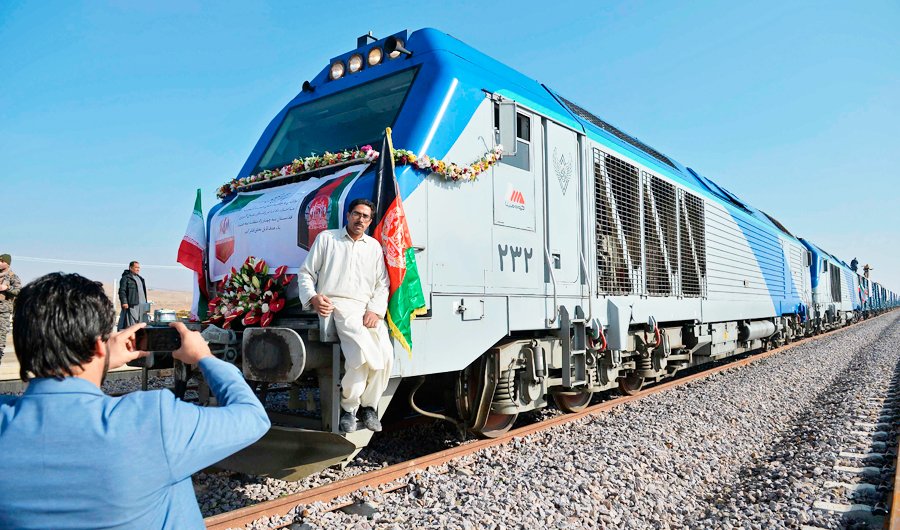
KABUL: The opening of a new rail link between Iran and Afghanistan will increase not only trade but also Tehran’s political influence on the land-locked nation, officials and experts believe.
The 140 km rail line from Khawaf in eastern Iran to western Afghanistan opened on Thursday, providing a transport link that will allow Afghan goods to reach Iranian ports on the Arabian Gulf and Gulf of Oman. The rail line also offers Iran another route into Central Asia.
“Iran has increased its involvement here because it will benefit for years to come from its imports here and to Central Asia,” Afghan MP Fawzia Zaki told Arab News on Friday.
The rail link was inaugurated in a virtual ceremony by Afghan President Ashraf Ghani and Iranian President Hassan Rouhani, who said that it would “strengthen relations between Afghanistan and Iran.”
The line spans 70 km in Iran and 60 km in Afghanistan, with Afghan authorities planning to lengthen it by 80 km to reach the city of Herat and its industrial park, which has become a trading hub with Iran and Central Asia in recent years.
Local officials estimate that Afghanistan can import 2 million tons of goods annually from Iran via the Khawaf-Herat link. Besides freight, the railway will also carry passengers.
“The corridor can unlock the untapped trade potential of Afghanistan and pave the way for economic growth,” Ahmad Samin, a former adviser to the World Bank, told Arab News.
According to Shamrooz Khan Masjidi, spokesman for Afghanistan’s finance ministry, the project also will reduce Kabul’s dependence on Islamabad for trade.
“It will more than anything reduce reliance on Pakistan. It’s part of our regional connectivity mega-plan. Afghanistan needs affordable and connected transportation for its economic growth and trade balance. Railways offer that platform. We can connect not only with Iran but also the wider region,” he said.
However, while the rail link is expected to make Kabul less reliant on Pakistan, it is likely to increase Iran’s political influence.
“Iran is an important trading partner with Afghanistan and the Khawaf-Herat railway will further strengthen the two countries’ economic and political relationship,” analyst Shakib Noori said.
The Afghan government will have to improve its security and ensure the railway does not become a “soft target for terrorist groups,” he added.
Torek Farhadi, a former adviser for the International Monetary Fund, told Arab News that trade with Iran is a “geostrategic imperative” for Afghanistan since it offers “more options for imports from international markets.”
“Reducing reliance on Pakistan makes both political and business sense,” he said.
Another political analyst, Nasratullah Haqpal, said that “Iran is keen to deepen its influence and economic ties in Afghanistan because of its untapped resources and other opportunities in the region.”
He said that the US also believes the Iranian port of Chabahar has a pivotal role in outweighing China’s massive infrastructure investment in Pakistan.
“The US wants to decrease Beijing’s role in development projects in the region and therefore has not included Chabahar in its sanctions,” Haqpal said.
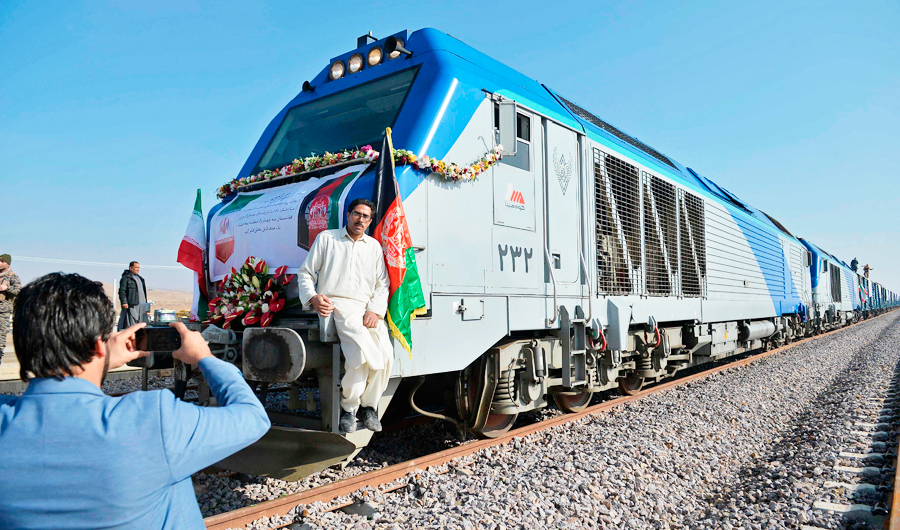
Intelligence experts say Iranian regime hackers targeted dissidents during online rally

 A new treatment could restore some mobility in people paralyzed by strokes
A new treatment could restore some mobility in people paralyzed by strokes 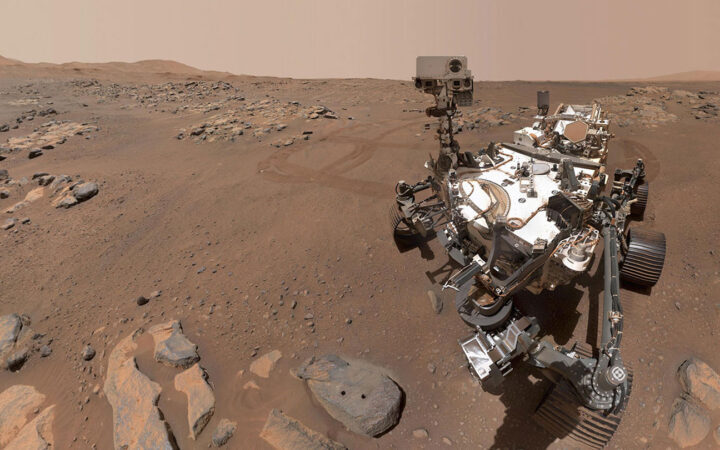 What has Perseverance found in two years on Mars?
What has Perseverance found in two years on Mars? 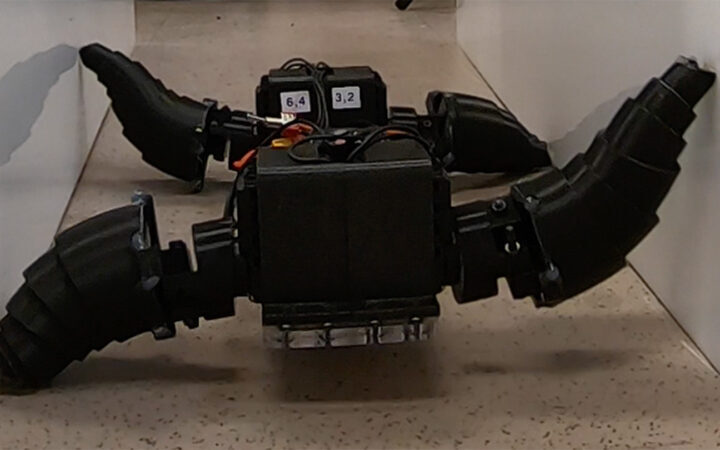 This robot automatically tucks its limbs to squeeze through spaces
This robot automatically tucks its limbs to squeeze through spaces 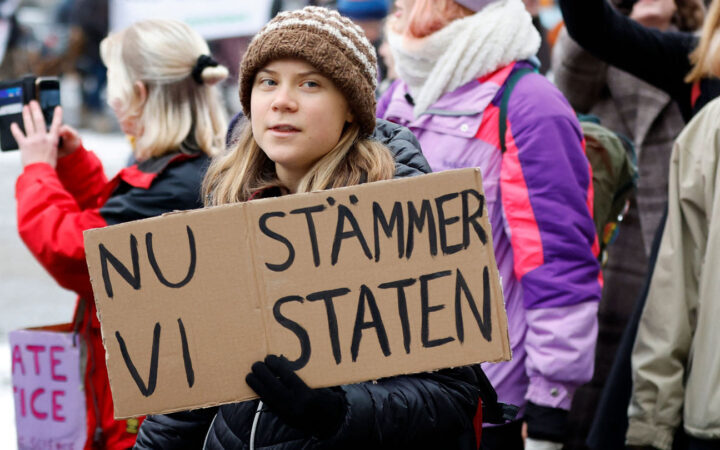 Greta Thunberg’s new book urges the world to take climate action now
Greta Thunberg’s new book urges the world to take climate action now  Glassy eyes may help young crustaceans hide from predators in plain sight
Glassy eyes may help young crustaceans hide from predators in plain sight 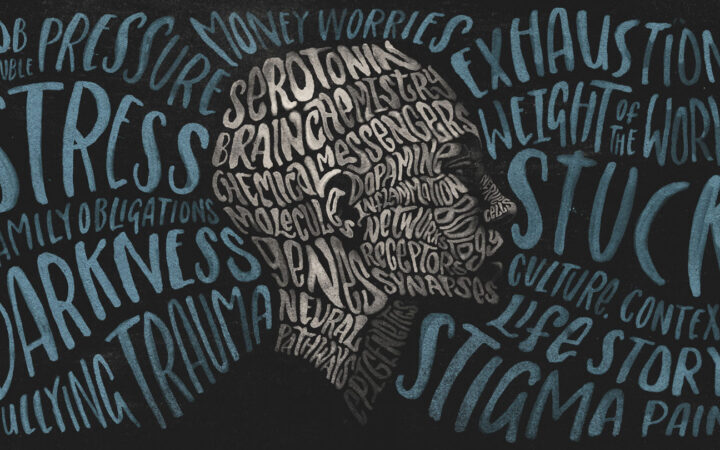 A chemical imbalance doesn’t explain depression. So what does?
A chemical imbalance doesn’t explain depression. So what does?